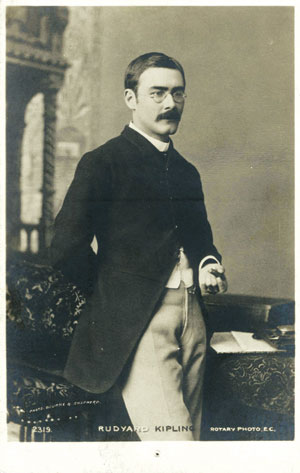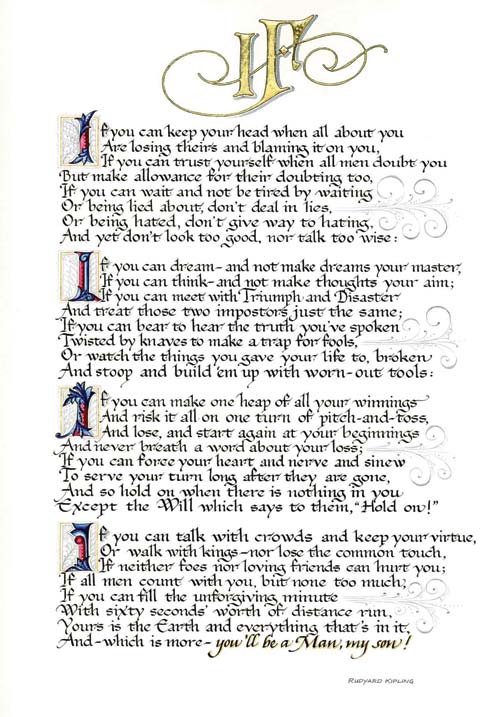
Rudyard Kipling

Some names automatically create visions of the English language and writers. Such a name is Rudyard Kipling who was one of the most popular English writers in the late 19th and early 20th centuries.
 During his career, he was the first English recipient of the Noble Prize for Literature in 1907 and published more than 80 stories and ballads, including The Jungle Book series, The Man Who Would be King and the poem Gunga Din.
During his career, he was the first English recipient of the Noble Prize for Literature in 1907 and published more than 80 stories and ballads, including The Jungle Book series, The Man Who Would be King and the poem Gunga Din.
Kipling was born in Bombay, India in December 1865 but at the age of five was sent back to England with his younger sister to stay with a foster family for the next six years until his mother returned from India to reclaim the children.
He was admitted to the United Services College in Devon in 1878 which proved difficult for him in the beginning but later provided the setting for his schoolboy stories and the creation of some long-lasting friendships.
A lack of academic ability and finances ended hopes of university and Kipling took a job in the Pakistan city of Lahore, sailing for India on 20 September 1882. He was appointed assistant editor of a small local newspaper which was published six days a week. In 1886 he published his first collection of verse but a change of editor allowed him more writing freedom and he was asked to contribute short stories to the paper.
Returning to England in October 1889, he was welcomed and recognised by the London literary world and had stories accepted by various magazines. His first novel, The Light that Failed, was published in 1891.
Kipling had met Florence Garrard, a fellow boarder at Devon and they were married in January 1892 in London, producing two daughters and a son. His popularity bloomed in the early part of the 20th century, resulting in the Nobel Prize for his 'observation, originality of imagination and remarkable talent for narration.'
 His writing gradually slowed in the early 1930s and he died of a haemorrhage from a perforated ulcer on 18 January 1936, aged 70. His ashes were buried in Poets Corner in London's Westminster Abbey.
His writing gradually slowed in the early 1930s and he died of a haemorrhage from a perforated ulcer on 18 January 1936, aged 70. His ashes were buried in Poets Corner in London's Westminster Abbey.
During his lifetime, scouting became a strong interest for Kipling and Lord Baden Powell, the founder of the scouting movement, selected excerpts from The Jungle Book series and the novel Kim to begin the junior Wolf Cubs. The movement was named after Mowgli's adopted wolf family and adult helpers in the Cub Packs adopted names taken from The Jungle Book.
The poem Gunga Din was published in 1890, If in 1910, the Jungle Book in 1894, The Second Jungle Book in 1895 and The Man Who Would be King in 1888 among his collection of novels, short stories and poems.
Kipling also had an extensive interest in Freemasonry and was initiated on 5 April 1886 at Hope and Perseverance Lodge in Lahore, India. He was also an honorary member of the Author's Lodge and Motherland Lodge in England and became a founding member of The Builders of the Silent Cities Lodge No 12 at St Omer, France.
Article extracted from Freemason magazine, December 2012, page 17.


